Kathleen M. Basi's Blog, page 28
May 25, 2016
How Mommy Plays Outside
Last Saturday, I rousted Nicholas out of bed earlier than he wanted to (we’d been at a party the night before and it was nearly 10 before the kids got to bed) so we could have a little date morning. We went to the Farmers Market for strawberries and came away with more…a lot more. Then we went to buy flowers, and I let him pick the flowers that will decorate our home for the rest of the year. It was a very good morning.
When we came home, I spent an hour putting the plants in the ground. When I came in at lunchtime, I found Alex reading on the couch. “Have you been outside yet?” I said. “It’s a gorgeous day.”
He shrugged. “Yeah, I went out and edged the lawn.”
“Oh, work doesn’t count,” I said. “You need to be outside just to play. That’s why Dad goes golfing, you know.”
Alex fixed me with a Look. “You never play outside.”
Christian and I said together, “For me/Mom, planting flowers is playing.”
And I added, “Weeding is work. But planting is play.”
Today is the last day of school for three out of four children, so I’m leaving you with my pretty flowers and I’m going as offline as possible for my last work day. (I will not check Facebook. I will not check Facebook…)





May 23, 2016
On Julianna, at the end of Grade 2
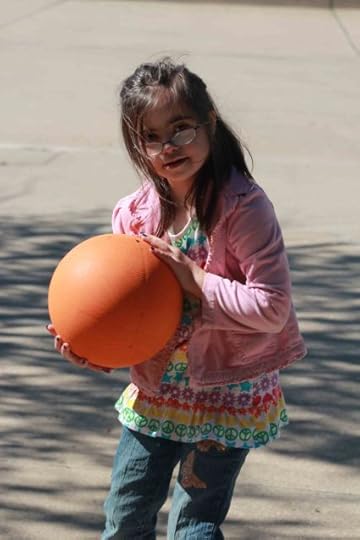
Julianna’s favorite toy these days. She loves to bounce and catch it with anyone who will play with her. And no, as a matter of fact, I can’t get her hair to stay in ANYTHING. Thanks for asking.
May 20, 2016
How Can You Be Emotionally Healthy If You Empty Yourself?

Image by Thomas Hawk, via Flickr
On any given day, this blog is my go-to place to wrestle with questions that trouble me and offer what little insight I have. But today I would like to turn that around. I had another post planned, but listening to the daily readings podcast this morning, I found myself challenged almost right out of the box. Do not complain, brothers and sisters, about one another, that you may not be judged. And Take as an example of hardship the prophets who spoke in the name of the Lord.
I find myself caught these days between the call to self-emptying that is central to the faith and the wisdom of interpersonal relationships which tells us that healthy relationships cannot exist when one party is suppressing her hurts, because that will only lead to resentment and, eventually, division.
Basically, I find myself caught in a spiritual/emotional tug-of-war between “I am called to give way to everyone else” and “I have a right and in fact a duty to assert myself when I am hurt.”
So today I would like you to talk to me–via combox, via Facebook, or even via email–and tell me how you bring these two seemingly irreconcilable truths into harmony.
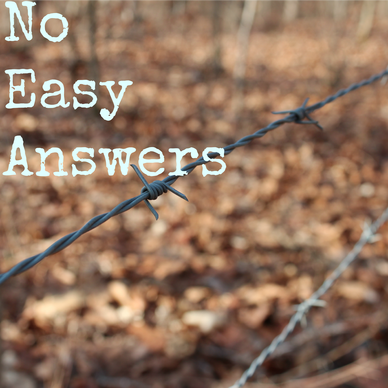


May 18, 2016
Introverts Unite!
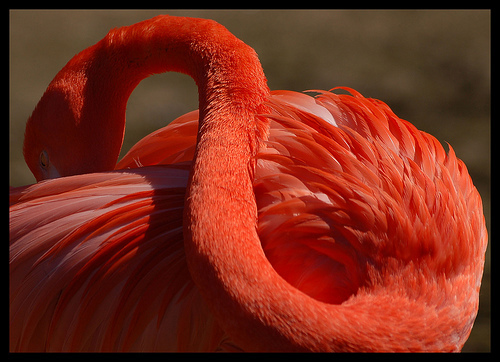
Photo by digitalART2, via Flickr
I suppose I’ve always known I was an “introvert.” I just didn’t realize that identity had its thumbprint on every aspect of life. I thought being an introvert just meant I have incredible anxiety about making cold phone calls and meeting new people.
So reading the book Quiet: The Power of Introverts in a World That Can’t Stop Talking, has been a bit of a self-revelation—and affirmation
“Many introverts are also ‘highly sensitive,’ which sounds poetic, but is actually a technical term in psychology. If you are a sensitive sort, then you’re more apt than the average person to feel pleasantly overwhelmed by Beethoven’s ‘Moonlight Sonata’ or a well-turned phrase or an act of extraordinary kindness. You may be quicker than others to feel sickened by violence and ugliness, and you likely have a very strong conscience.” (p. 14).
Check. At the dress rehearsal for our Stravinsky-Prokofiev concert in April, I started crying when the choir sang their excerpt of Rachmaninov Vespers. And check, for how I watch the news. And check, for the conscience.
“Introverts are more likely to function well without sleep and learn from our mistakes, delay gratification, and ask ‘what if’.” (p. 3)
Um….check, check, check, and check. It’s like she interviewed me to write that sentence.
(Description of a Tony Robinson seminar, where everyone’s dancing. “I stand somewhat peevishly with arms crossed until I decide that there’s nothing to be done but join in and hop up and down along with my seatmates.” (36)
Check. This makes so many things crystal clear–my problems with the “ice breakers” and emotional manipulation that so many religious retreats undertake is just like this: participate or be looked down upon, even if it’s not just outside your comfort zone, it stands at complete odds to the way you express yourself as a human being.
“I realize it’s not true that I’m no longer shy; I’ve just learned to talk myself from the ledge (thank you, prefrontal cortex!). By now I do it so automatically that I’m hardly aware it’s happening. When I talk with a stranger or a group of people, my smile is bright and my manner direct, but there’s a split second that feels like I’m stepping onto a high wire.” (119)
Um….YES.
“…most of us…(believe) that venting anger lets off steam. The ‘cartharsis hypothesis’—that aggression builds up inside us until it’s healthily released—dates back to the Greeks. …But…scores of studies have shown that venting doesn’t soothe anger; it fuels it. We’re best off when when we don’t allow ourselves to go to our angry place. Amazingly, neuroscientists have even found that people who use Botox, which prevents them from making angry faces, seem to be less anger-prone than those who don’t, because the very act of frowning triggers the amygdala to process negative emotions.” (233)
Check. This one really hit home, because in recent history, expressing my negative emotions has only led to drama and added stress. It occurs to me that maybe my go-to way of dealing with conflict, which is to avoid screaming matches and look for solutions rather than fling angst into the world, is actually a better way to go, even if human nature just wants to lash out and assert my own right to be seen, my feelings considered. This has large implications for conflict resolution, both with my children and within my larger circles, that will have to be explored in much greater depth over time.
In the end, reading this book made me realize it’s okay to prefer a one on one, or two at most, structure for social gatherings; it’s okay not to like clubbing, to find booze-fests unappealing. It’s okay to prefer to hunker down at home. It made me understand that my aversion to loud music you have to scream to talk over top of is actually a part of my nature, not an acquired taste I can and should overcome. It made me understand that being exceptionally sensitive to what others think of me is part of what makes me strong–not some psychological hangup I need to get over.
It made me realize, too, that although I’ve learned to act like an extrovert in order to cope in a world catered toward extroverts, there’s good, solid rationale behind suggesting that extroverts could benefit from acting more like me, too.


May 16, 2016
How Building A Boat Can Be A Work Of Mercy
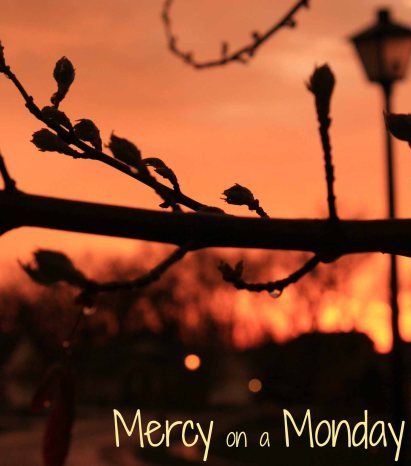 Sometimes I take things too seriously.
Sometimes I take things too seriously.
Shocking, I know. No one would ever have guessed that from reading this blog. (Ahem.)
For five months I’ve been focused on how hard mercy is to live out. And it is a challenge, each and every day. But that doesn’t mean it has to be a drudgery.
Alex and I spent the month of April with a handful of his classmates, building a boat out of cardboard. I had never heard of such a thing before, although apparently cardboard regattas are a not an uncommon phenomenon. This one is a fundraiser for the Central Missouri Food Bank, and we learned about it because it is sponsored by the radio station that is partner in education with Alex’s class.
(You catch a couple of glimpses of Alex’s team right near the beginning of this video, in a white boat with gray “pages” painted across it. Their boat was called the “5th grade chronicles,” and they all dressed as their favorite book character.)
Although his interest in the project had everything to do with the words “build,” “boat,” and “cardboard,” and nothing at all to do with “works of mercy,” it was the latter that made me commit to participating despite April being an exceptionally intense scheduling month.
Cutting cardboard, using Gorilla glue and caulk doesn’t feel much like a work of mercy. But we also did a 5th grade bake sale before school one day—fifty cents per item or three for a dollar. It was twenty minutes long on a Friday morning, and it made almost five hundred dollars. It was a wild twenty minutes, that’s for sure. And that? That did feel like a work of mercy, because all of that money went to the Food Bank.
On a drizzly Saturday morning at the end of April, we all met at a lake and the kids climbed in their boat. We had no idea if it was constructed such that the mathematics of displacement would keep them afloat. For all we knew, the boat might go straight to the bottom the moment it cleared the shore. Alex was kind of hoping to sink—just “not right away.”
They didn’t sink; in fact, they won their race. The moms who supervised and directed the construction were feeling pretty pumped and empowered afterward. And it was a good reminder that mercy doesn’t have to be wrapped in solemnity and constrained by knowledge of the world’s suffering. Sometimes mercy can be, well…fun.

For more “Mercy on a Monday” posts, click here.


May 13, 2016
My Life In Ten Pictures
1: Crazy Kids in a big hollow tree stump

2: Fire Starter

3: What a haircut looks like when it’s been 6 months…

4: New ‘do

5: Four kids, and still they find new ways to misuse the house…(In case you’re wondering, he’s got Batmobiles in his hand and is driving them up and down the support beam.)
6: Sven in Peril:

7: Probably put there by Darth Michael-us (who knew a winter coat made such a good costume?)

8: King of the please-let-it-die-before-it-strands-me-again truck:
9: The Incredible Backward Boy has grown up into the Incredible Inside Out boy….
10: And of course, here’s the Princess Sophia wannabe. This is how she watches Netflix on the iPad, except usually she pushes her glasses up on top of her head.

And yes, she actually was watching with her leg straight up in the air. Have I ever mentioned that once we found her sleeping that way?
Time for a weekend. Have a good one!


May 11, 2016
You say Self”ish”, I Say Self”less”
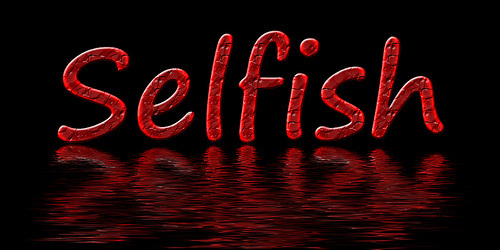
Image by Damian Gadal, via Flickr
I’ll admit it: I totally blew it last summer. I tried to extend my “work-year” to ten months by putting kids in summer school, promising myself that it would be enough to do weekly field trips during July and August. But the first ten days of July were taken up with our triple-duty trip to Michigan. Which was a great trip, but by the time I’d put the energy into planning logistics, making arrangements, juggling family and conference, and getting the travel write-ups done, I just wanted a couple weeks off planning anything at all! And then there was one thing and another and another, and by the time it was over, we only managed to do one field trip the entire summer.
The kids were excruciatingly bored.
Summer or not, I need to be able to work. On the other hand, I can’t expect to work as much as I do when the kids are in school. And that can be hard to stomach when it seems like the trajectory of my writing career is trending upward.
Am I alone in feeling that tug-of-war between the suffixes “-ish” and “-less”?
As in: self-ISH vs. self-LESS?
The parent-vs.-work fulfillment dynamic is where it shows most clearly for me, but it also comes into play every time I find myself in conflict with others. My identity as a Christian means I place high value on self-emptying. And yet there is a point at which I have the right to say, “Hey. I deserve respect, too.”
But it’s very hard to figure out where that line falls. I have conditioned myself to give way to everyone else. To take blame in order to keep peace. To take blame in order to teach my children the skill of apologizing. To take blame (at least partial) even when I don’t think I did anything wrong, because that’s what it means to resolve conflict.
Lately, I’m feeling that I’ve let it go too far.
But it’s very, very hard to draw a line and assert myself. I feel selfish.
Still, if all my personal wrestling with the idea of “balance” has taught me anything, it is that the tension in that tug-of-war rope keeps me honest.
So I’ve spent a decent amount of time the last two weeks with a pencil and a three-month calendar, figuring out how to set aside time for the kids this summer while still leaving myself time to work. And I’m spending a lot of time thinking through conflict, trying to see other points of view without applying an internal narrative that negates my own.
And I guess that’s the best I can do.


May 9, 2016
On Being Vulnerable. Very vulnerable.

Photo by damselfly58, via Flickr
“I don’t know how you blog,” a friend of mine said not long ago. “I worry so much about what other people think. I don’t know how you do it. I mean, you actually have to deal with ‘trolls.'”
I had to be honest and say that my reach is really too small to attract much in the way of trolls. Still, I, too, take disagreements and criticism very much to heart. It’s why I try so hard to think through different points of view before I ever write, and why I consider so hard the topics I cover, and am willing to engage and admit when I’m off base. It’s also why I so often remind people to respond with thought and care–because reasoned, calm, thoughtful debate hurts much less than thoughtless comments, which can cut very, very deep indeed.
I began blogging because that’s what authors are supposed to do. It’s called “platform”–you’re supposed to build up a following of people who will become your book audience. But it’s never worked out that way for me. The only niche I’ve ever found, the one that always sends the hits skyward, is Down syndrome, and I don’t believe that would remain true if I blogged about it all the time. I’ve made this a place where I look at the world and myself in a thoughtful way, mostly replacing the Journals I wrote starting at the age of eleven or twelve. I’ve tried to address the struggles I face and the blemishes I see in myself with honesty. I’ve always been pretty open about my world–not because I think I’m so all-fire unique, but because I’m not. I think a lot of people feel what I feel, but not everyone is as analytical. If putting my spiritual and emotional wrestling matches out there can help others put words on something they too have faced, and help them find their own way, then I’ve done a good thing for the world.
The risk, though, is that I lay myself open to judgment from those whose opinions really do matter. I am always, always aware that those I love know more about my deepest feelings than I do about theirs–and that more often than not, they don’t engage in conversation about it. There’s a vulnerability to that situation that goes unrecognized. For a person like me, whose soul recoils from chastisement and positively shrivels at derision and sarcasm, it is a huge act of, well…vulnerability. When I feel criticism and judgment from someone who matters, it cripples me. It upsets my digestive system. My fingers shake for hours. And of course, I can’t sleep.
I’ve never addressed this before, because I’ve always felt if I did, people would feel they can’t engage in discussion (especially disagreement) at all–and what is the point of putting your thoughts out in a public forum if you’re not open to discussion? Open to personal growth? I don’t need a bunch of mirrors reflecting my own idols back at me.
But I hope this little digression will illuminate how important it is for all of us to think before we speak, and to weigh words carefully instead of saying every blessed thing that comes to mind without thought of how it might impact others. And yes, I am including myself in that “all.”


May 6, 2016
The Problem(s) With Mother’s Day
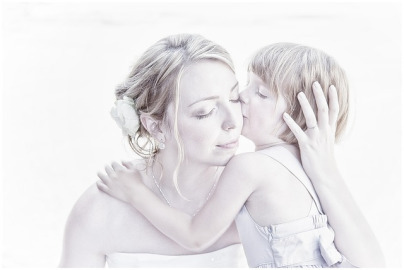
How Motherhood is Supposed To Look

How motherhood ACTUALLY looks today. Photo by Sangudo, via Flickr
The problems with Mothers Day are legion.
1. It’s not fair to the dads. Mother’s day is way, way, way bigger a deal than Father’s Day, and that’s just not okay.
2. Everybody wants to give mom gifts for one day, make these adorable crafts that you’re expected to keep for all time, and it often seems to me that we’d rather substitute sentiment for actual, you know, LOVE. Like, recognizing that what Mom really needs is help ALL THE TIME, not some craft that just adds to the mess and only honors you one day a year anyway!
3. While we’re on that subject, let’s talk about lightsabers, books, individual LEGO pieces, Captain America Shields, bookbags, knot rosaries, school crafts, school papers, Wii remotes, DVDs no one has watched, scrapbooks, candy wrappers, pencils, erasers, crayons, play doh, soccer balls, bouncy balls, basketballs, crappy party-favor pinball mazes (do you get the idea?) left lying wherever you lost interest in them, cluttering up the world. And yet if i throw anything away, woe to me!
3a. While we’re on that subject, let’s talk about “Put away your clothes,” and how that translates to “I’m going to read a book/build a marble run/stuff them in a wad under the closet rod/ignore you completely” the first FIVE TIMES I SAY IT.
4. Nor does it matter how many times we teach, discuss, or give consequences. Nor does it matter how many attempts at organizational systems we put together.
5. And then there’s the outcry and protest whenever I assign jobs: “I did that last week!” and “no fair, he never has to!…”
6. And then there’s the inevitable annual inner conflict between “I am a mother” and “I HAVE a mother.” How do you balance being the recipient of all this attention with giving it appropriately to the one who gave you life? And then of course, your husband has a mother, too. It’s like you have to choose who gets your attention, and then even if the other one (or more, depending on if you have broken families) doesn’t feel hurt, you inevitably are aware that you’re prioritizing one over another. When I start griping about the way a holiday is celebrated, one of my sisters always gives me grief about it (“is there any holiday you DO like?” she’s asked me), but this is why: I don’t see how we can possibly honor our mothers as we’re supposed to on this day and at the same time accept that honor ourselves. It’s like the system is stacked against us.
7. Yes, I know. This is what parenthood is: assuming heroic, even foolhardy, responsibility for other human beings. To burn away their innate selfishness and teach them to be Good People is not just a job. It’s not even just a vocation. It’s something that is way, way bigger than any of us. And when I think about how much time I spend worrying about whether someone’s going to call DFS because I let my kid climb a tree or because he fell down and skinned his knee and is screaming as if he’s had his leg torn off by a shark…well, I get kind of pissy. And when the kids fall to demanding, whining, and being lazy/disobedient despite the fact that they really aren’t being asked to do all that much, and they’re given way more privileges than I ever got growing up? Then I have a Mommy Meltdown. And we start making new lists to hang on the pantry door.

Yeah, Happy Mothers Day to you, too.
Love, Kate
Linking to 7 Quick Takes, because I’m sure they’re all talking about motherhood today, too. Although probably with less angst.


May 3, 2016
Book Giveaway: THE MEMORY OF US, by Camille di Maio
We have a special guest in the house today: author Camille di Maio, a Catholic homeschooling mom, Realtor, and author from San Antonio, TX. Camille is here to introduce us to her debut novel, THE MEMORY OF US, the story of a Protestant socialite from Liverpool and the Catholic seminarian she falls in love with. You can find more information about the book here, on its Goodreads page, along with my review.
Camille has graciously agreed to answer some questions about her book. If you have more questions, leave them in the combox and she’ll answer them. And—bonus!—she will offer one lucky commenter a copy of THE MEMORY OF US. So ask away! And I will “ask away” for you…
Camille, what made you choose this particular time and place to set the novel?
 My original inspiration happened as I was listening to my iPod while driving our four kids around on errands. The song “Eleanor Rigby” by the Beatles came on, which I have always loved. But, it struck me differently this time. I thought about this lonely woman and this lonely priest and what might have happened in their lives to bring them to the final verse in the song. I was intrigued by setting it in Liverpool, in homage to the roots of the Fab Four, and I’ve always been fascinated by the drama of the war years. So, Britain in WWII was a great fit for the story ideas that were swirling around in my head. The book, however, is not “about” the song. The characters have different names. But fans of the song will certainly see its influences.
My original inspiration happened as I was listening to my iPod while driving our four kids around on errands. The song “Eleanor Rigby” by the Beatles came on, which I have always loved. But, it struck me differently this time. I thought about this lonely woman and this lonely priest and what might have happened in their lives to bring them to the final verse in the song. I was intrigued by setting it in Liverpool, in homage to the roots of the Fab Four, and I’ve always been fascinated by the drama of the war years. So, Britain in WWII was a great fit for the story ideas that were swirling around in my head. The book, however, is not “about” the song. The characters have different names. But fans of the song will certainly see its influences.
You’re a home-schooling, NFP-practicing, Catholic mother of four. How does that shape the stories you tell and the themes you explore?
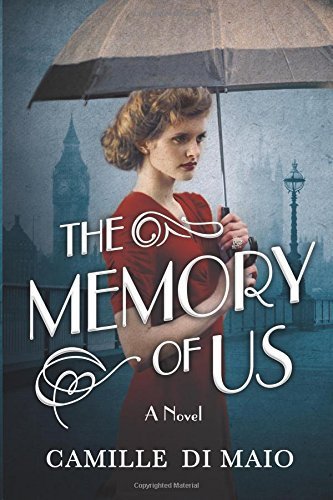 While I don’t believe that you have to “write what you know”, I do believe that there is an authenticity that comes with telling a story that has some traces of your own experience in it. I am not “me” without Catholicism. For my first foray in to writing a novel, it was only natural to weave elements of that in to the manuscript. And, since a priest is one of the primary characters, that made it an easy choice.
While I don’t believe that you have to “write what you know”, I do believe that there is an authenticity that comes with telling a story that has some traces of your own experience in it. I am not “me” without Catholicism. For my first foray in to writing a novel, it was only natural to weave elements of that in to the manuscript. And, since a priest is one of the primary characters, that made it an easy choice.
Despite its subject matter, you don’t consider this book Catholic fiction, but mainstream fiction that happens to center on Catholic topics. Is there a reason you chose to go that route, rather than write directly to a Catholic audience?
I love reading about other cultures. Catholicism is a culture, and I wanted to represent it in a unique way to a wide audience. In secular entertainment, the references are almost always derogatory, misrepresented (even with good intentions), or hopelessly sappy. In fact, we have a robust, rich, complex faith that goes back two thousand years. There is much to draw from that is magnificent. But, it doesn’t get much of a voice in modern literature. So, I do consider the target audience for this to be mainstream fiction readers, while it draws references and embraces situations that are inherently Catholic. Advent, Last Rites, Mass, lighting candles, fasting, etc. However, I would definitely not call it a “Catholic” book, because in no way is it preachy or trying to convince anyone of anything. It simply has a main character who is a Catholic priest, and it is reasonable to build the world of his story around that.
But, in deference to my faith, there is absolutely nothing in the book that would be uncomfortable for a Catholic to read. Yes, there are brief romantic scenes between two of the characters, but none are inappropriate or graphic. My threshold is, if my priest/confessor can’t read it, I won’t write it. I believe literature can be compelling but clean. Catholics should have no issue with reading it. But, secular readers (hopefully) will also be very intrigued by the story and by a view of a culture that they, perhaps, know little about.
Although you don’t beat us over the head with it in the book, the themes of vocation and discernment come through clearly. What do you hope readers will take away from it?
The two primary vocations in our faith – priesthood and marriage – are definitely explored in the book. I consider them to be on equal footing, each modeling a different aspect of the image and likeness of God. We can’t have one without the other. Both involve dedication and calling, and each requires taking a lifelong vow. I hope that readers will walk away with a profound respect for both states of life. Additionally, I hope that readers will see how seriously I take the concepts of discernment and purpose. We are each created for a specific reason, despite what many outside influences may want from us – good or bad. Kyle and Julianne are both the subjects of other people making choices for them. But, ultimately, they must each discover what it is that they were created for.
Can you give us a tease for your next project?
My publisher just gave me a contract for my next book, BEFORE THE RAIN FALLS, which will be out in spring 2017. While the religious tones are not quite as evident as they are in THE MEMORY OF US, it is set in south Texas, which certainly has Catholic influences. If the theme of the first could be said to be “vocation”, you might say that “sacrifice” is the theme of the next one. We’re not far enough along to have written a full blurb yet, but this might give you an idea: Two sisters. One death. A mysterious portrait. And a town with a desperate need to find hope. It is written in chapters alternating between the 1940s and present day, as a washed-up journalist and a young doctor cross paths while trying to discover the truth behind what happened so many decades ago. And how that revelation can save the people in the border town in which they meet.
Thanks for joining us today, Camille.
Readers, be sure to leave a comment to be entered in the giveaway! (Please comment here, not on Facebook, so that I have your email address and can contact you if you win!) We’ll do the drawing on May 17th.





